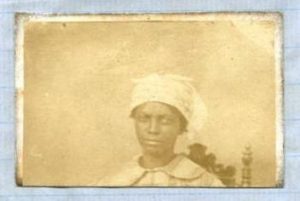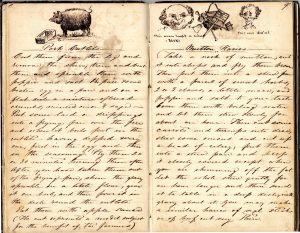[Today we feature the life and work of Reverend James A. Felton of Hertford County, North Carolina. The Southern Historical Collection is proud to be the repository that preserves a small collection of papers from the Felton family (the James A. and Annie V. Felton Papers, Collection #5161, finding aid). The following biographical note comes from the finding aid for the Felton Papers.]
James Andrew Felton was born on 6 July 1919 in Hertford, Perquimans County, N.C. After spending almost three years in the United States Marine Corps, he earned his B.S. from Elizabeth City State Teachers College (now Elizabeth City State University) and his M.A. from North Carolina College at Durham (now North Carolina Central University). He taught in the Greene and Hertford County school systems for 20 years, and, in 1965 he published “Fruits of Enduring Faith,” a story that dramatizes the human issues behind the Civil Rights Act of 1964.
In the mid-1960s, Felton and Reverend John L. Scott of New Ahoskie Baptist Church formed the People’s Program on Poverty, an African American organization created to study and fight poverty on the grass-roots level. Through his work in this program, Felton founded the first Family Training Center in the United States. During this time, he was also actively involved in organizations such as the President’s Commission on Rural Poverty, the North Carolina Family Life Council, and a local chapter of the National Association for the Advancement of Colored People (NAACP).
In 1980, Felton established the C. S. Brown School Auditorium Restoration Association to restore Brown Hall, a building that had been part of the campus of Chowan Academy, an African American school founded in 1886 by Calvin Scott Brown. The C. S. Brown Regional Cultural Arts Center and Museum in Winton, N.C., opened in 1986.
James A. Felton married Annie Vaughan on 3 August 1947. They had six children: James Andrew, Jr., Keith, Maria, Sharon, Michele, and Camilla. James A. Felton died in Winton, N.C., on 6 October 1994.
[To learn more about the contents of the SHC’s Felton Papers collection, please see the finding aid].


